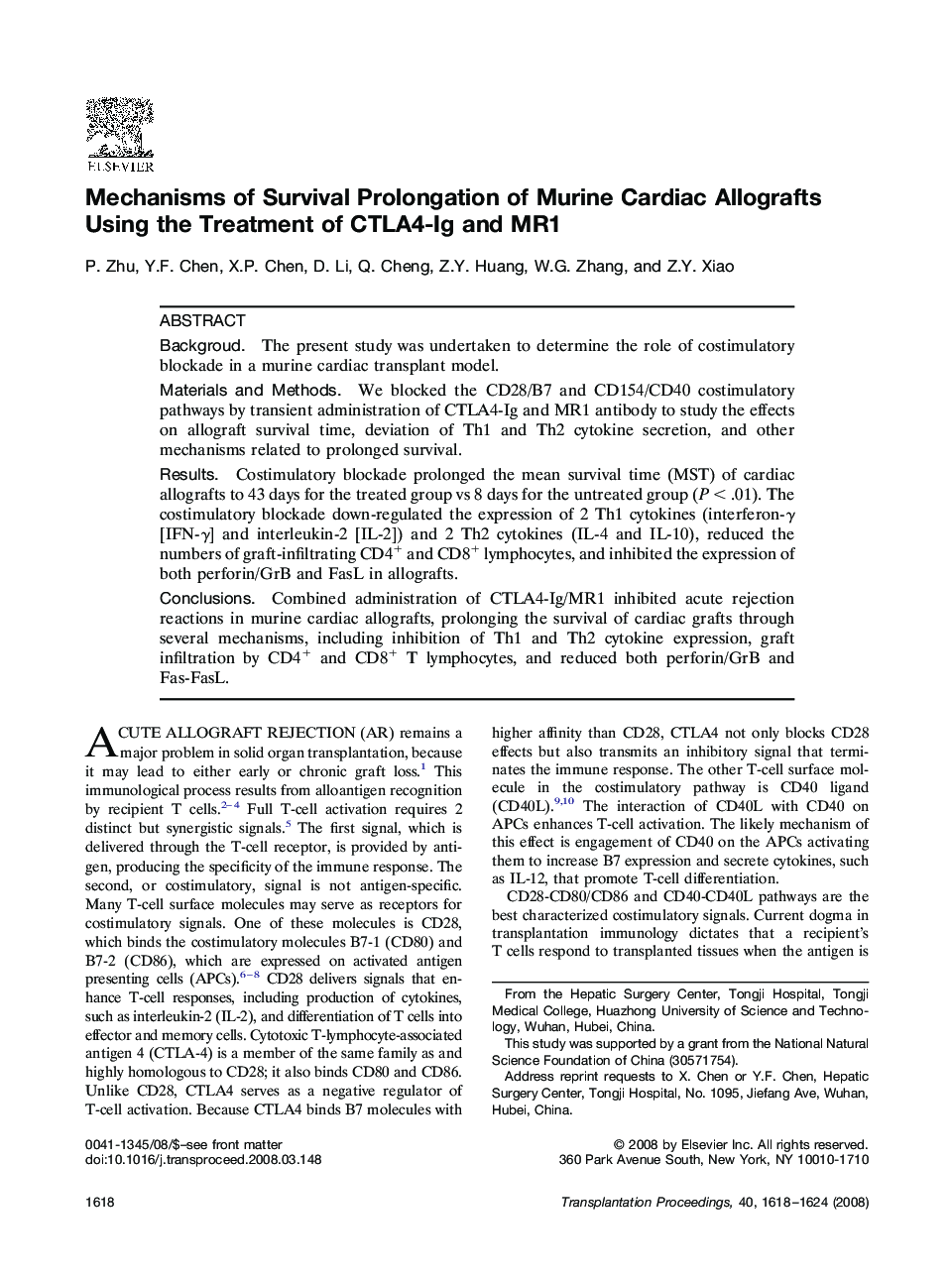| Article ID | Journal | Published Year | Pages | File Type |
|---|---|---|---|---|
| 4258272 | Transplantation Proceedings | 2008 | 7 Pages |
BackgroudThe present study was undertaken to determine the role of costimulatory blockade in a murine cardiac transplant model.Materials and MethodsWe blocked the CD28/B7 and CD154/CD40 costimulatory pathways by transient administration of CTLA4-Ig and MR1 antibody to study the effects on allograft survival time, deviation of Th1 and Th2 cytokine secretion, and other mechanisms related to prolonged survival.ResultsCostimulatory blockade prolonged the mean survival time (MST) of cardiac allografts to 43 days for the treated group vs 8 days for the untreated group (P < .01). The costimulatory blockade down-regulated the expression of 2 Th1 cytokines (interferon-γ [IFN-γ] and interleukin-2 [IL-2]) and 2 Th2 cytokines (IL-4 and IL-10), reduced the numbers of graft-infiltrating CD4+ and CD8+ lymphocytes, and inhibited the expression of both perforin/GrB and FasL in allografts.ConclusionsCombined administration of CTLA4-Ig/MR1 inhibited acute rejection reactions in murine cardiac allografts, prolonging the survival of cardiac grafts through several mechanisms, including inhibition of Th1 and Th2 cytokine expression, graft infiltration by CD4+ and CD8+ T lymphocytes, and reduced both perforin/GrB and Fas-FasL.
